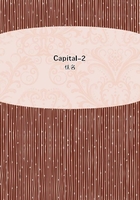
第7章
Marx stands in the same relation to his predecessors in the theory of surplus-value as Lavoisier stood to Priestley and Scheele. The existence of that part of the value of products which we now call surplus-value had been ascertained long before Marx. It had also been stated with more or less precision what it consisted of, namely, of the product of the labour for which its appropriator had not given any equivalent. But one did not get any further. Some -- the classical bourgeois economists -- investigated at most the proportion in which the product of labour was divided between the labourer and the owner of the means of production. Others -- the Socialists -- found that this division was unjust and looked for utopian means of abolishing this injustice. They all remained prisoners of the economic categories as they had come down to them.
Now Marx appeared upon the scene. And he took a view directly opposite to that of all his predecessors. What they had regarded as a solution, he considered but a problem. He saw that he had to deal neither with dephlogisticated air nor with fire-air, b:lt with oxygen -- that here it was not simply a matter of stating an economic fact or of pointing out the conflict between this fact and eternal justice and true morality, but of explaining a fact which was destined to revolutionise all economics, and which offered to him who knew how to use it the key to an understanding of all capitalist production. With this fact as his starting-point he examined all the economic categories which he found at hand, just as Lavoisier proceeding from oxygen had examined the categories of phlogistic chemistry which he found at hand. In order to understand what surplus-value was, Marx had to find out what value was. He had to criticise above all the Ricardian theory of value. Hence he analysed labour's value-producing property and was the first to ascertain what labour it was that produced value, and why and how it did so. He found that value was nothing but congealed labour of this kind, and this is a point which Rodbertus never grasped to his dying day. Marx then investigated the relation of commodities to money and demonstrated how and why, thanks to the property of value immanent in commodities, commodities and commodity-exchange must engender the opposition of commodity and money. His theory of money, founded on this basis, is the first exhaustive one and has been tacitly accepted everywhere. He analysed the transformation of money into capital and demonstrated that this transformation is based on the purchase and sale of labour-power. By substituting labour-power, the value-producing property, for labour he solved with one stroke one of the difficulties which brought about the downfall of the Ricardian school, viz., the impossibility of harmonising the mutual exchange of capital and labour with the Ricardian law that value is determined by labour. By establishing the distinction of capital into constant and variable he was enabled to trace the real course of the process of the formation of surplus-value in its minutest details and thus to explain it, a feat which none of his predecessors had accomplished. Consequently he established a distinction Inside of capital itself with which neither Rodbertus nor the bourgeois economists knew in the least what to do, but which furnishes the key for the solution of the most complicated economic problems, as is strikingly proved again by Book II and will be proved still more by Book III. He analysed surplus-value further and found its two forms, absolute and relative surplus-value.
And he showed that they had played a different, and each time a decisive role, in the historical development of Capital ist production. On the basis of this surplus-value he developed the first rational theory of wages we have, and for the first time drew up an outline of the history of Capital ist accumulation and an exposition of its historical tendency.
And Rodbertus? After he has read all that, he -- like the tendentious economist he always is -- regards it as "an assault on society, " finds that he himself has said much more briefly and clearly what surplus-value evolves from, and finally declares that all this does indeed apply to "the present form of capital, " that is to say to capital as it exists historically, but not to the "conception of capital," namely the utopian idea which Herr Rodbertus has of capital. Just like old Priestly, who swore by phlogiston to the end of his days and refused to have anything to do with oxygen.
The only thing is that Priestly had actually produced oxygen first, while Rodbertus had merely rediscovered a commonplace in his surplus-value, or rather his "rent," and that Marx, unlike Lavoisier, disdained to claim that he was the first to discover the fact of the existence of surplus-value.